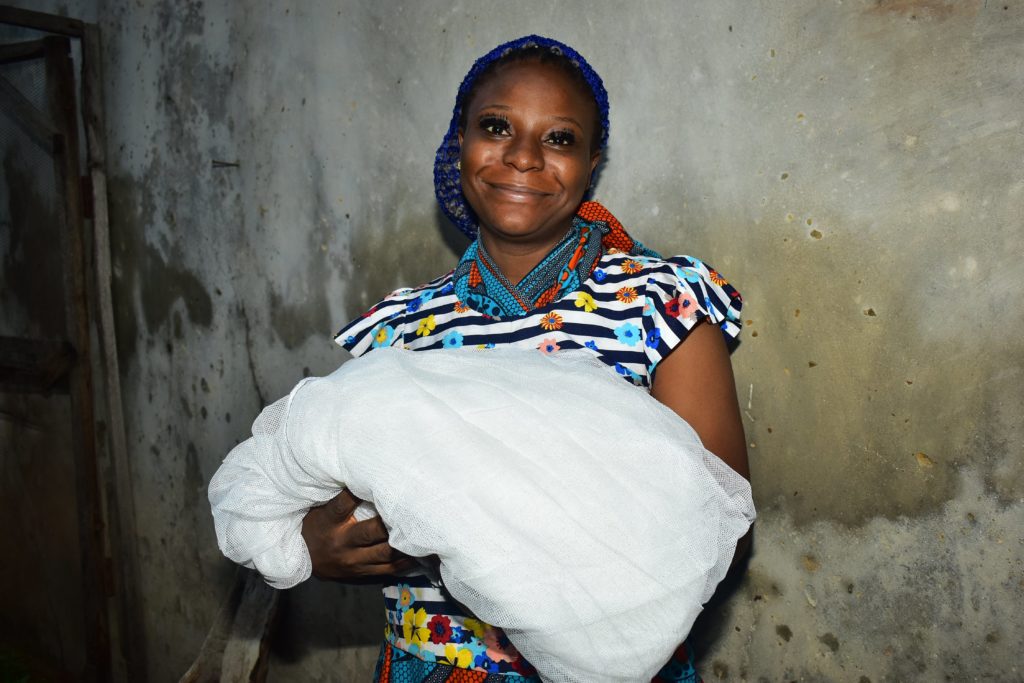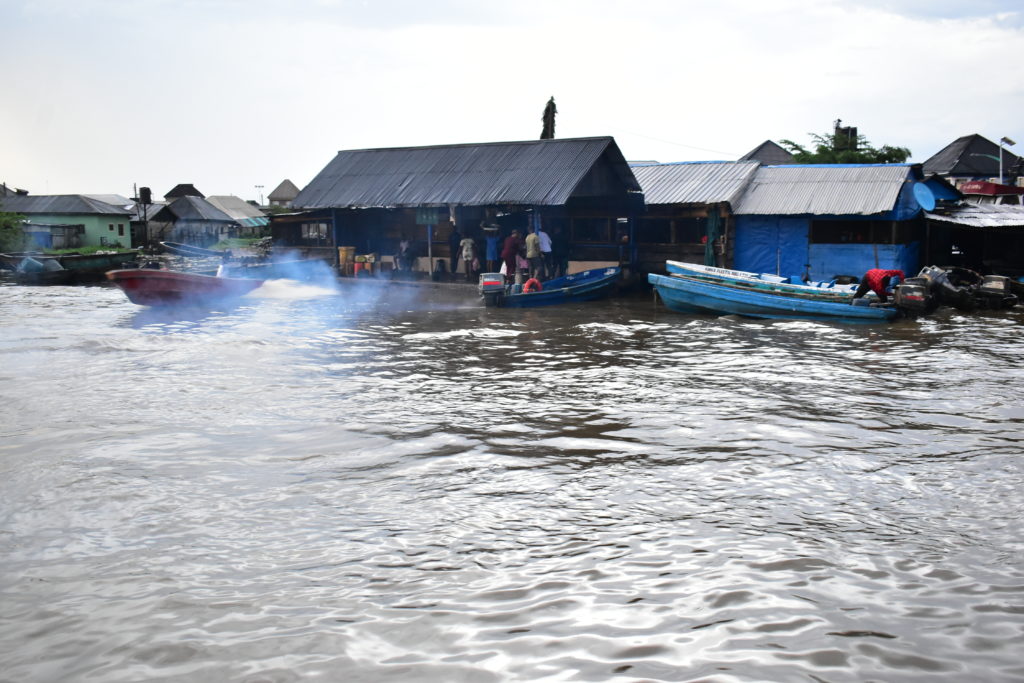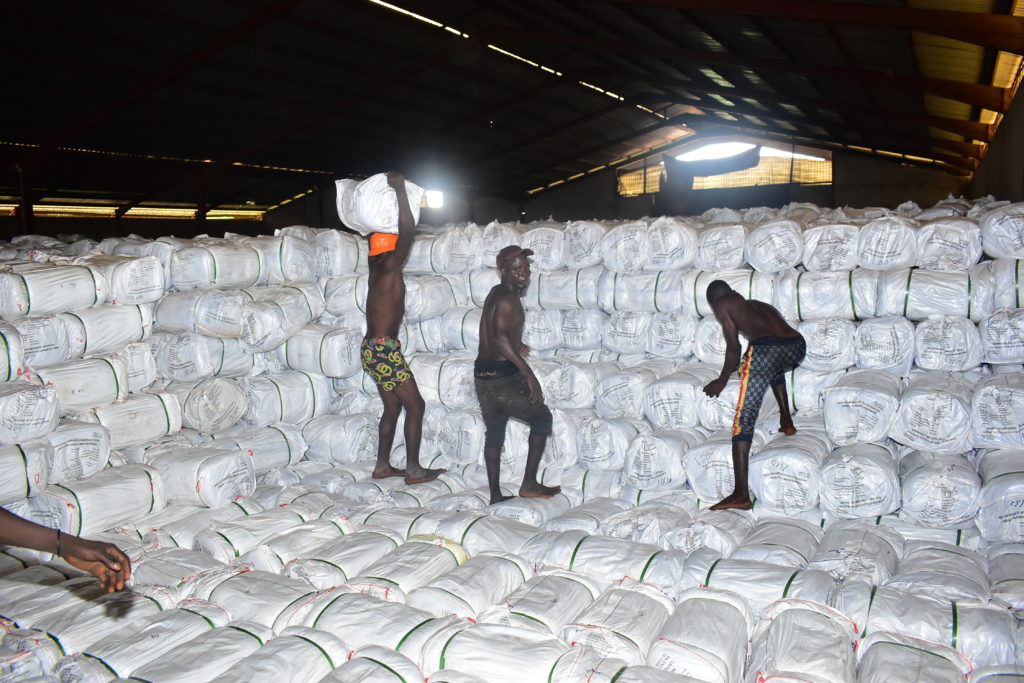A Campaign to Replace Bed Nets is Keeping More than Seven Million People Safe from Malaria in Nigeria’s Delta State
A Campaign to Replace Bed Nets is Keeping More than Seven Million People Safe from Malaria in Nigeria’s Delta State

The creeks of Delta State in Nigeria are filled with fish—an important source of protein and a major economic mainstay—but these beautiful waterways are also a breeding ground for mosquitoes that can cause malaria. The disease remains a major public health concern for Nigeria, which accounts for one-quarter of the global malaria burden according to the 2021 World Malaria Report. In Delta State, with an estimated population of eight million, malaria continues to sicken people and claim too many lives—a tragedy compounded by serious ramifications for the local economy.
The Government of Nigeria, through the National Malaria Elimination Program (NMEP), has been collaborating with the Global Fund to Fight AIDS, Tuberculosis and Malaria and implementing partners—Management Sciences for Health (MSH) and Catholic Relief Services (CRS)—to eliminate malaria in the country. A key approach toward this goal is the mass distribution of insecticide-treated bed nets, which provide personal protection against mosquitoes. But due to common wear and tear, bed nets must be replaced every three years.

Going door to door
Leveraging our presence and experience working in Nigeria over the past 15 years, MSH was able to support the Delta State Malaria Elimination Program to recruit and train more than 9,000 team members to roll out the distribution of insecticide-treated bed nets. Working in teams of two—one member referred to as the Mobilizer and the other as the Distributor—they moved from door to door providing health education to families before handing over the nets. The education covered general information on malaria prevention and how to use and care for the nets. Household members were also educated on preventive measures against COVID-19 in local languages. One bed net was given for every two persons in a household, rounding up to a maximum of four nets per household in the case of uneven numbers or households with more than eight members.
Learning from bed net distribution campaigns conducted in 2020, when the COVID-19 pandemic was still new, the team adopted prevention measures and guidelines from WHO and Nigeria’s National Centre for Disease Control, which included the use of face masks in public, hand washing, and the use of hand sanitizer after every household visit.
The risk of inadvertently skipping households was reduced by using a carefully developed plan of daily visits mapped out during the planning phase of the campaign.

Meeting malaria control targets
The Delta State bed net replacement campaign is helping the Government of Nigeria meet two of its strategic objectives outlined in the National Malaria Strategic Plan (2021–2025): 1) To provide at least 80% of the targeted population with adequate preventive measures by 2025 and 2) To provide adequate information to all Nigerians so that at least 80% of the population habitually takes appropriate malaria preventive and treatment measures by 2025.
Several social mobilization activities were carried out during the campaign, including advocacy visits to gatekeepers of the communities, orientation meetings with community and religious leaders, town union meetings, school-based orientations, street announcements, and community dialogue sessions to enhance buy-in to the campaign process and ensure community participation. There were also orientation meetings with journalists in the state to help them gain insight into the bed net distribution process. This generated coverage of the campaign, with articles published as the campaign launched and after it was under way.
There were also live radio and television programs about the campaign. Town announcers were utilized as key personnel to help promote community participation and facilitate community awareness, especially among populations without access to modern means of communication. Messages were delivered using local languages to ensure that all members of the community were reached with the correct information.
The campaign, which is a follow-up to a similar campaign conducted in 2019 in the state, reached more than seven million people. MSH, CRS, the NMEP, and other malaria partners are now reviewing the lessons from this campaign with the aim of improving future campaigns in other states in Nigeria.